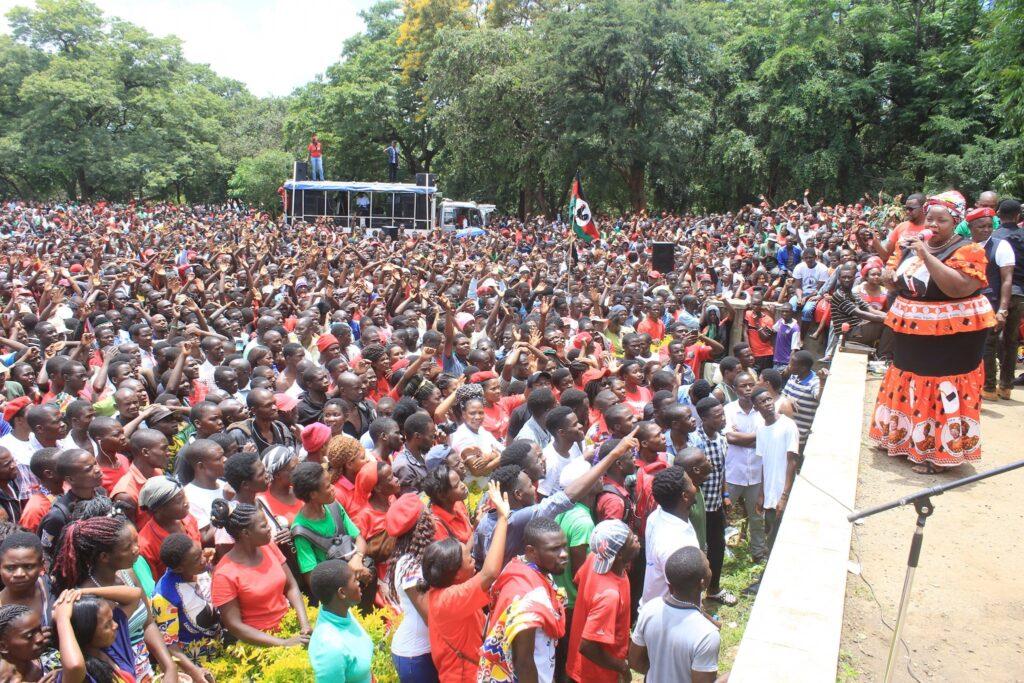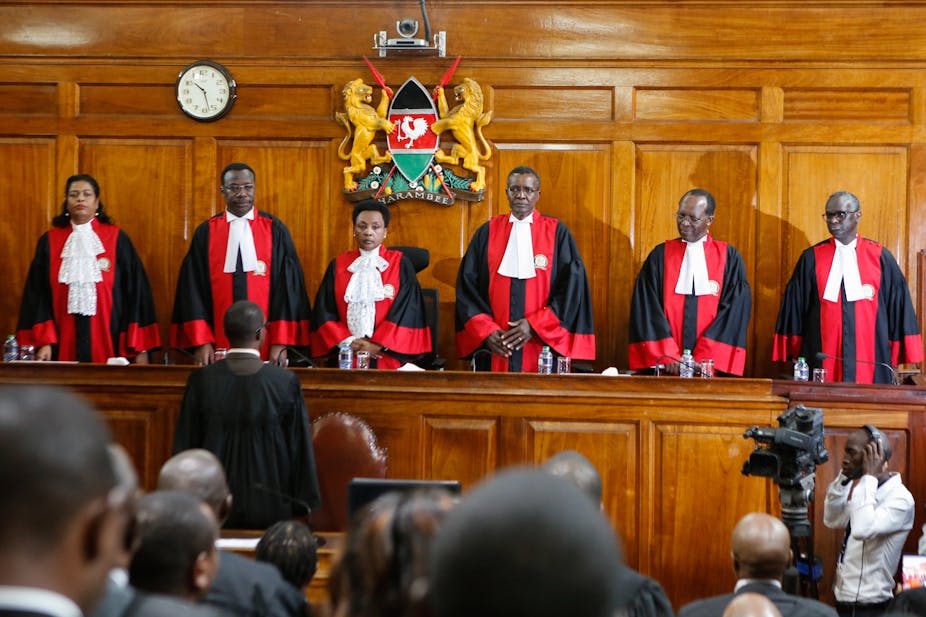Opposition parties across Africa and world have been using a similar set of strategies to discredit elections. Here’s what they are.

A rally held by the opposition Malawi Congress Party (MCP) shortly after constitutional court’s verdict annulling the May 2019 elections. Credit: MCP.
Malawi recently held its breath as the Constitutional Court took ten hours to painstakingly on the highly controversial 2019 presidential elections. When it finally became clear that the judgement would nullify the election of President Peter Mutharika, jubilant opposition supporters took to the streets to celebrate.
Malawi became only the second country in Africa, after Kenya in 2017, and the , to see a president’s victory overturned in the courts. What is striking about the two African cases is that the opposition did not conclusively prove that it had won the most votes. Instead, the judges that widespread breaches of electoral regulations could also be interpreted as undermining key legal and constitutional principles.
The willingness of the judges to evaluate election petitions in this different way was partly shaped by effective opposition and civil society campaigns. These efforts combined with to highlight malpractices and discredit the electoral process.
Kenya and Malawi are not isolated cases. From to and to , opposition leaders have lost faith in the electoral process and observers. They are adopting increasingly combative approaches.By pushing their – often valid – complaints onto the streets as much as in the courts, opposition leaders have learnt how to deprive governments of the popular goodwill and international credibility they need to govern effectively. But there is a danger. In doing so, they risk triggering a repressive backlash from governments desperate to retain power at any cost.
The opposition playbook
Opposition parties in most of the world’s newest and least established democracies enter elections knowing that they have little chance of winning.Over half of elections in sub-Saharan Africa, Asia and post-communist Europe saw significant irregularities . Worse still, few of these elections have seen decisive interventions by either the international community or the judiciary to protect democratic principles.
So it shouldn’t come as a surprise that more opposition parties are attempting to shift the battleground to the court of public opinion. As well as increasing the pressure on judges and ambassadors to act, effectively discrediting an election can harm the government’s reputation. This is true even if the official result is ultimately allowed to stand.
The complete version of this opposition playbook involves five main steps. But, in practice opposition parties tend to use only some, depending on the situation:
- Lay the foundations. In recent elections in and , opposition leaders alleged that the process was being manipulated well ahead of the voting day. This encouraged journalists to look for evidence of irregularities, and generated popular expectations that the process would be problematic. One of the most effective ways to achieve this is to consistently challenge electoral preparations. Examples include alleging bias in the , and corruption in the .
- Direct the blame. Allegations of wrongdoing are most effective when they are personalised. So, opposition parties typically seek to demonise prominent members of the electoral commission. For example, social media platforms are used to circulate rumours that senior electoral officials had been seen at the homes of ruling party officials, and were . In countries like Kenya and Nigeria these rumours often go unsubstantiated, but are nonetheless widely believed by opposition supporters.
- Claim victory. An election can only be discredited if it is plausible that the opposition actually won. Thus, canny opposition leaders spend a lot of time during the campaign and the counting of the votes claiming they have the . This is usually followed by a press conference shortly after the ruling party’s victory has been declared to denounce the results, and claim that the opposition has evidence of systematic wrongdoing. This happened in Bangladesh, where a losing opposition leader slammed the process as .
- Protest early, protest often. Opposition parties often have a strong support base in capital cities. The greater access to information and more densely packed voters makes it easier for them to mobilise support. This makes it possible to hold large protests, especially if civil society groups are also active and influential. In Malawi, the Human Rights Defenders Coalition made it in the run-up to the Constitutional Court’s judgment. This kept the pressure on the judges to make sure they would not be tempted to brush complaints under the carpet.
- Demand action. Having seen many dubious election results allowed to stand, opposition leaders are increasingly willing to call out judges and the international community. This often includes refusing to recognise the legitimacy of the president, explicitly criticising who fail to condemn the elections, and insisting that foreign ambassadors intervene to promote democracy.
Risk of backlash
Publicly discrediting elections can help to uncover and deter electoral incompetence and manipulation. But it is a dangerous strategy.
In more authoritarian countries the outcome can be greater repression. For example, presidents and prime ministers have responded to post-electoral unrest by citing it as evidence that the opposition is a . This claim may then be used to legitimise censorship and repression.
In Zimbabwe, more than 20 people died as a result of the government’s in the two years since the 2018 general elections. Similarly, in nearby Zambia, opposition leader Hakainde Hichilema’s refusal to recognise the legitimacy of President Edgar Lungu led to his .
Given the risks involved, it’s striking that discrediting an election very rarely means winning one. Even in Kenya, where Kenyatta’s initial victory in 2017 was nullified by the Supreme Court, the ruling party won after the . It claimed that insufficient changes had been made to ensure it would be free and fair.
Showing that the process was flawed can hurt the government, but does not usually lead to its defeat – at least in the short-term.
This article is republished from under a Creative Commons license. Read the .

No comments:
Post a Comment